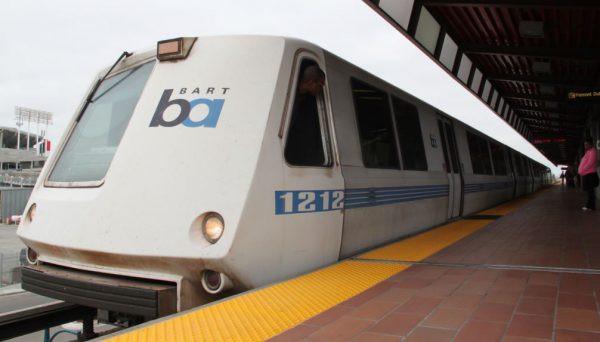Physical Address
304 North Cardinal St.
Dorchester Center, MA 02124
Physical Address
304 North Cardinal St.
Dorchester Center, MA 02124

On August 23rd, a California assembly bill aimed at increasing transit-oriented development, like housing, was passed by the state senate, confirmed by the assembly, and headed to Governor Jerry Brown’s desk for signing. The bill, AB 2923, specifically targets the San Francisco Bay Area—making it easier than ever for the Bay Area Rapid Transit (BART) to build housing on the land it owns around its transit stations. Previously, housing developments on BART-owned land were still subject to local zoning rules, pushing projects through local processes to be approved before building began. This local control led to many delays, and, as a result, housing denials in the midst of an ongoing housing shortage—on that repeatedly spurs news headlines decrying four-plus hour super commutes, median home prices over $1 million, and neighborhoods blocking affordable housing. State bills like AB 2923 are a response to these reports, as well as the local control that led to them. If passed, AB 2923 and other bills like it, will bypass local control’s draconian rules to allow more housing to be built and ease the housing shortage. Under current law, land owned by BART is often subject to discretionary review in Bay Area cities. This forces BART to become de facto experts in every municipality zoning code, an impossible task that would take away from their focus on improving their transit system. Even attempting to master the zoning codes of every municipality takes time. Ultimately, this causes delays in building housing that’s so sorely needed. But this could easily be avoided if BART could establish their own zoning rules under AB 2923. Housing and transit is intrinsically linked and, just like suburban home developers build the roads to best suit their development, urban transit authorities like BART must utilize their capacity to build the homes best […]
Last week, Nick Josefowitz unseated a multi-decade incumbent for a spot on the BART board of directors. Normally I don’t pay too much attention to elections, but Mr. Josefowitz might actually have some good ideas. For everyone outside the Bay Area, the BART (Bay Area Rapid Transit) system is a commuter rail line that constitutes the vital transportation link between the East Bay and San Francisco. On a typical weekday it provides 400,000 rides and that number is increasing as the regional economy continues to boom. Suffice it to say that BART is a big deal to a lot of people who rely on it every day (myself included). While Josefowitz’s campaign website talks about cleaning up dirty stations and increasing late night train availability, I had the privilege of hearing him outline an interesting proposal during a private, small group discussion some months ago. According to Josefowitz, BART sits on a substantial amount of real estate in the form of station parking lots. His proposal was to repurpose some of this space as high density housing. This would help with the region’s housing shortage and support BART ridership by clustering population around the system’s stations and the lost spots could be offset by building parking structures on the remaining lot space (many BART parking lots are ground level only as opposed to multi-level parking structures). This sounded a lot like Hong Kong’s integrated rail-property development approach which has proven to be an unqualified success, so my interest was definitely piqued. As always, there’s plenty of which to be skeptical. The fact that the proposal was brought up in a private discussion, but isn’t listed on the campaign website may say something about where it falls in Josefowitz’s priorities. Also, it’s difficult to tell how effective the incoming director will be […]